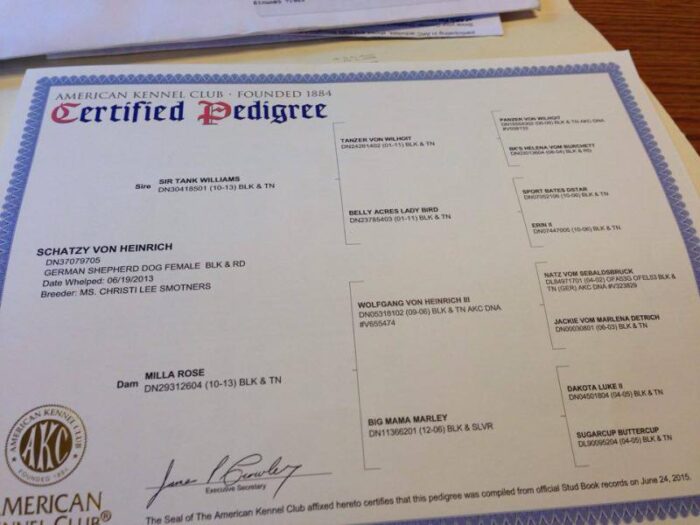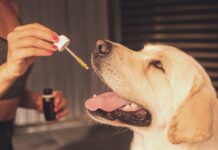
Are you considering adopting a puppy but want to make sure it is purebred? Before you bring home your new furry friend, here are some tips to guarantee that the pup’s pedigree is in order!
Identifying a Purebred Puppy

Knowing what a purebred puppy looks like is only the first step when you are searching for the right puppy companion, specifically when it comes to service dog puppies for sale. There are several additional considerations that can help assure that the puppy you are buying is authentically purebred.
Visiting a Breeder
Meeting the breeder face-to-face is essential to making sure you receive an authentic purebred puppy. Reputable breeders should be knowledgeable about the breed and will encourage buyers to ask questions about the history, general health, and genetics of their puppies. They should also have proof of registration with a reliable registry, as well as records of immunization and other care required for puppies.
Stud Records
Reputable breeders will be able to provide valid license numbers for both sire (father) and dam (mother). It is important to check pedigree information from independent kennel clubs in order to verify any lineage claims. Most reputable kennel clubs will provide verification if requested, including photographs or pedigree documents of parents that you can use as part of your research process.
Photos/Videos
Requesting photographs or videos of your prospective puppy may help in ensuring authenticity by allowing you to visualize details such as size and facial markings unique to certain breeds. Vet examinations may also be performed prior to purchase in order to assess wellness related factors such as weight, coat quality, and appearance prior to bringing home your furry friend!
Importance of Pedigree Documentation

It is important to ensure that it comes with accurate and detailed pedigree documentation. This document will list the puppy’s parents, grandparents, great-grandparents, and even farther back generations – all of which must be purebreds for the puppy to be definitively classified as purebred. Legitimate pedigree documents should usually be issued by a recognized kennel club or organization such as the American Kennel Club (AKC).
Pedigree documents from reputable organizations are the best way to confirm that your pup is indeed purely bred. These documents provide valuable information about an animal’s lineage and breeding history, allowing you to make an informed decision when purchasing your puppy. Additionally, they make it easier to track your pup’s lineage if you ever decide to breed them in the future.
Moreover, pedigree documentation ensures that breeders have adhered to certain best standards specified by reputable clubs or organizations. For example, the AKC offers a Seal of Approval program for breeders who successfully guarantee their animals’ pedigrees through extensive testing and meet specific guidelines on health clearance requirements and care practices. Receiving the AKC seal ensures that the breeder is committed to producing quality puppies with no underlying physical or medical issues that can crop up later down the line.
It is important for potential buyers of purebred puppies to check for reliable pedigree information before committing any money or taking a pup home with you since this acts as proof of its bloodline provenance. Accurate pedigree documentation can also help pet owners locate particular litters or certify them with recognized clubs during events like show competitions.
Visiting the Breeder

Visiting the breeder is the most recommended way to ensure that the puppy you are buying is purebred. A reputable breeder should have a cozy and clean kennel environment. Ask to view where the puppies are raised, such as the whelping area, and also view the puppy’s mother; this will help verify that it is an authentic purebred dog.
Make sure to check how long they have been breeding and get details on what type of health checks they do on their dogs. You should check:
- Rabies vaccines
- Worming treatments
- Vaccinations
- Heartworm treatments
Ensure that all of these vaccinations are up-to-date with paperwork documenting them before you finalize your purchase.
The breeder should also be happy to answer all of your questions; if they avoid important questions or seem offended if they appear dismissive or unwilling to provide information it’s a red flag and an indication that maybe this isn’t a reputable breeder after all. Finally, always make sure you receive documents proving that the puppy was licensed for sale in your state or province.
Health Considerations

Before deciding on whether or not to purchase a purebred puppy, it is important to consider the pup’s overall health. It is recommended to have any potential pet examined by a veterinarian prior to bringing them into your home. This is especially true if you plan to breed your pup and will be responsible for the long-term health of the litter and future generations of pups.
Health tests should be done by a vet with experience working with purebred animals. Typical tests may include hip, elbow, and eye exams as well as genetic testing to ensure that the puppy you’re buying is in good condition with no predispositions or risks for inheritable diseases such as hip dysplasia or cataracts. These tests are beneficial for helping you choose between litters of purebred puppies, as well as understanding what specific needs each one might have once they’re in their new home.
In addition to medical assessments, it’s important to know the background of any prospective puppy, including information about their parents and other related ancestors. A litter history can provide useful insight into what type of care the pup may need throughout its lifetime and enable you to make an informed decision about which pup best fits your lifestyle needs. Additionally, getting in contact with previous owners and assessing living conditions can give you more information about the puppy’s quality of life before coming under your care.
Conclusion
If you choose an animal shelter or rescue organization, you will likely not encounter breeds that are considered ‘rare’ or ‘designer’, but there are interesting mongrels that make incredible companions as well! In either case, it is important to be aware of any existing health issues or other concerns that could affect your decision. Puppy owners should also be prepared to dedicate time and energy to meeting their new pup’s needs so they can live out happy and healthy lives together!








